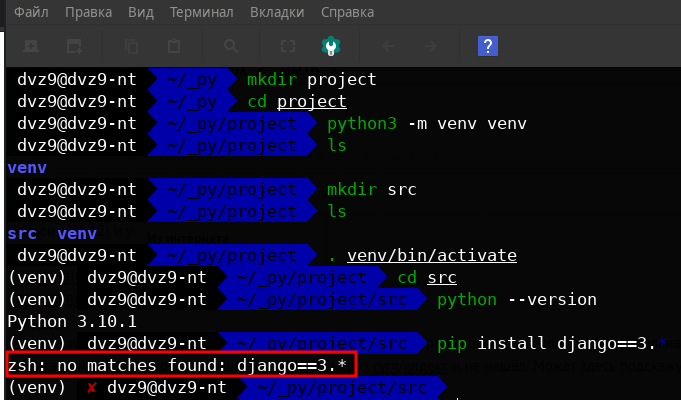Answer the question
In order to leave comments, you need to log in
How to make the zsh terminal understand the asterisk ( * ) when working with pip (python manager) in the same way as bash?
Yesterday I tried on MacOs, and today on Linux Manjaro. The result was equally unsatisfactory.
The bottom line is that (for example) to install the latest version of django of the third branch, I use the following command:
pip install django==3.*
and bash understands perfectly well that you need to find which one is the latest (and at the time of this writing this is version 3.2.12) and install.
But zsh writes the following:
zsh: no matches found: django==3.*
well, I’ll never believe that I’m so unique and no one has ever encountered anything like this before. And if so, then there must be a solution. I searched through Google / Yandex and did not find it. Maybe they can advise here.

Answer the question
In order to leave comments, you need to log in
In command
pip install django==3.*
Neither bash nor zsh looks for the latest version of django for you. This is what pip does by itself
Using wildcard characters can actually lead to a non-obvious situation where
$ echo Hello* World
Hello* World
$ touch Hello1
$ echo Hello* World
Hello1 Worldnoglob pip install django==3.*alias pip="noglob pip"Didn't find what you were looking for?
Ask your questionAsk a Question
731 491 924 answers to any question